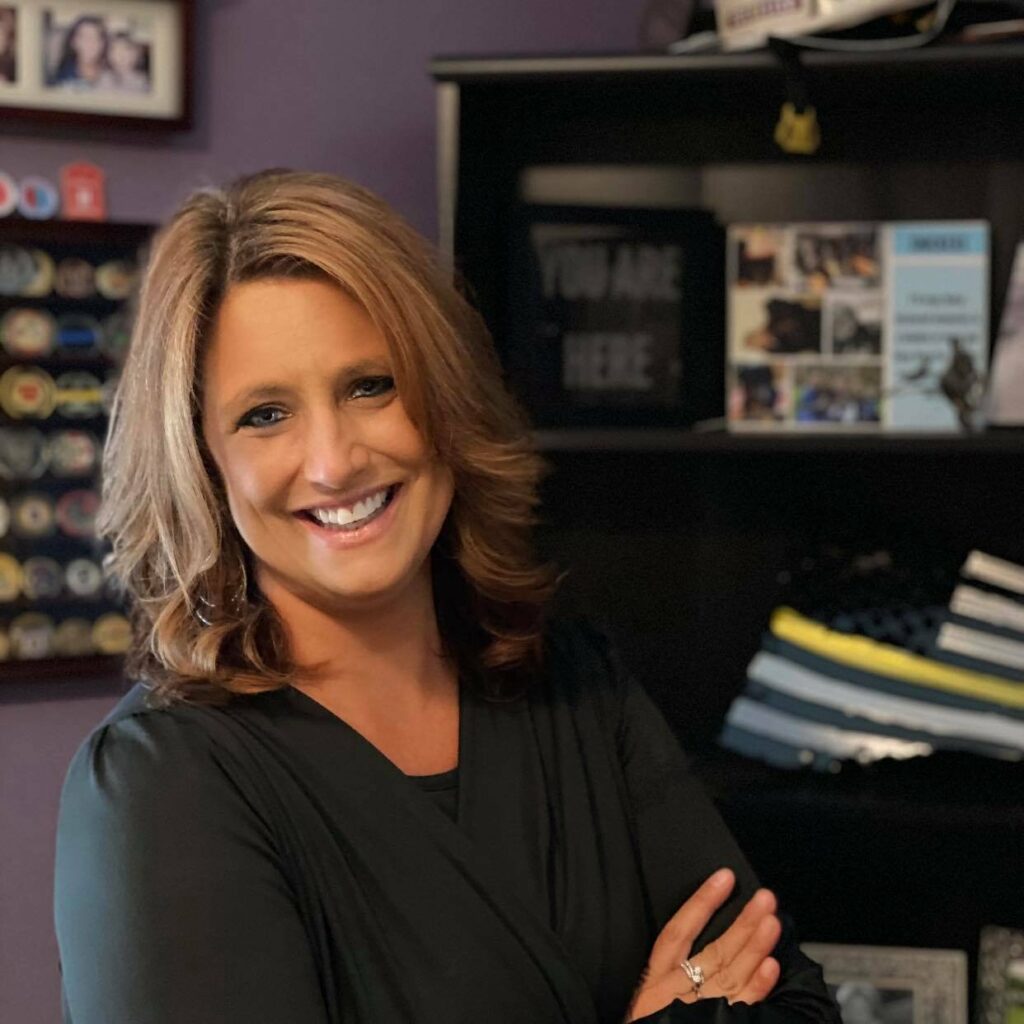When you say “first responder” to most people, they think police and fire, but really there’s someone before them. It’s the person who answers that 911 call, the voice who calms, instructors, and sends for help: the dispatcher.
Voices in the Dark
Tracy Eldridge spent over 25 years in public safety in Massachusetts. She was the voice in the dark, hearing everything, unable to reach through the phone physically but talking through instructions and dispatching responders needed for each call. She understands the nature of the job and why it’s a different type of trauma.
Dispatchers may not be physically present, but they’re there, in the moment, audibly in the scene. That’s what makes this type of PTSD unique. Images can be interrupted (sometimes) but voice, sounds—those can haunt a responder for years.
One firefighter tells us her department rotates them through dispatch every few weeks.
“I hate it,” she confesses. “If I had to do it on a regular basis, I’d find a new profession. I feel so helpless.”
“Of all the trauma I’ve seen,” one former responder says, “dispatch affects me the worst. I can still hear it.”
While dispatchers are trained to remain calm and follow a script, all the events of that call can remain trapped in their heads. This is the cause of PTSD for so many in the telecommunications field. Those sounds and voices replay. They come at different times and places.
The Other Side of the Call
While responders do their job for those in need, dispatchers move on to the next call, and the next, and the next. Usually, there’s no closure.
“I started having this need to control everything,” Tracy recalls. “I always tell people the importance of the phrase, ‘I don’t feel right.’ What I learned in my career is that when people [use that phrase], there’s something significant going on.”
It doesn’t come down to just one person or event. Recognizing that “not right” feeling or seeing someone struggling is something that needs to be widespread. Management should be checking in with their people regularly. Coworkers should recognize signs of distress. Responders should have the education needed to assess themselves to say if something doesn’t feel right.
When we can recognize trauma or PTSD sooner, we can heal sooner and work towards healthier living, healthier mental status. We become more productive and enjoy more.
That’s exactly what Tracy is working towards for first responders. That’s why she launched On Scene First.
On Scene First
Focusing on public safety, On Scene First provides education, training, tools, technology, and support around mental health for both leadership and first responders. Tracy also hosts an excellent podcast, On Scene First with Tracy Eldridge. She also travels the country speaking and training 911 telecommunicators with The Public Safety Group. She’s also worked with RapidSOS, where she helped build the first emergency response data platform which delivers device-based locations to 911 and field responders. The site has links to training, including DISC training, which proves useful for all forms of leadership.
A Voice for Dispatchers
Tracy has become a voice for dispatchers but also a beacon for first responders everywhere and a resource for leaders with On Scene First. We at FRC are proud of the work she’s done and look forward to continuing to work with and support all she does. If you haven’t yet, check out all the links above to see the great work she’s doing. We’ll leave you with this poem by Tracy.
